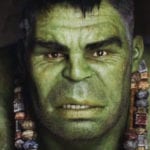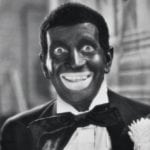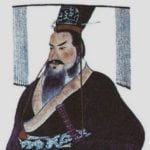 History
History  History
History  Weird Stuff
Weird Stuff 10 Wacky Conspiracy Theories You Will Need to Sit Down For
 Movies and TV
Movies and TV 10 Weird Ways That TV Shows Were Censored
 Our World
Our World 10 Places with Geological Features That Shouldn’t Exist
 Crime
Crime 10 Dark Details of the “Bodies in the Barrels” Murders
 Animals
Animals The Animal Kingdom’s 10 Greatest Dance Moves
 Movies and TV
Movies and TV 10 Box Office Bombs That We Should Have Predicted in 2025
 History
History 10 Extreme Laws That Tried to Engineer Society
 History
History 10 “Modern” Problems with Surprising Historical Analogs
 Health
Health 10 Everyday Activities That Secretly Alter Consciousness
 History
History 10 Dirty Government Secrets Revealed by Declassified Files
 Weird Stuff
Weird Stuff 10 Wacky Conspiracy Theories You Will Need to Sit Down For
 Movies and TV
Movies and TV 10 Weird Ways That TV Shows Were Censored
Who's Behind Listverse?

Jamie Frater
Head Editor
Jamie founded Listverse due to an insatiable desire to share fascinating, obscure, and bizarre facts. He has been a guest speaker on numerous national radio and television stations and is a five time published author.
More About Us Our World
Our World 10 Places with Geological Features That Shouldn’t Exist
 Crime
Crime 10 Dark Details of the “Bodies in the Barrels” Murders
 Animals
Animals The Animal Kingdom’s 10 Greatest Dance Moves
 Movies and TV
Movies and TV 10 Box Office Bombs That We Should Have Predicted in 2025
 History
History 10 Extreme Laws That Tried to Engineer Society
 History
History 10 “Modern” Problems with Surprising Historical Analogs
 Health
Health 10 Everyday Activities That Secretly Alter Consciousness
10 Of The Most Offensive Superheroes In The History Of Comics
If just for a few minutes, superheroes help us believe that someone out there is going to come in and save the day. They give us someone to look up to, root for, and aspire to become. But sometimes, superheroes miss the mark and offend way more than they inspire.
10Gin Genie
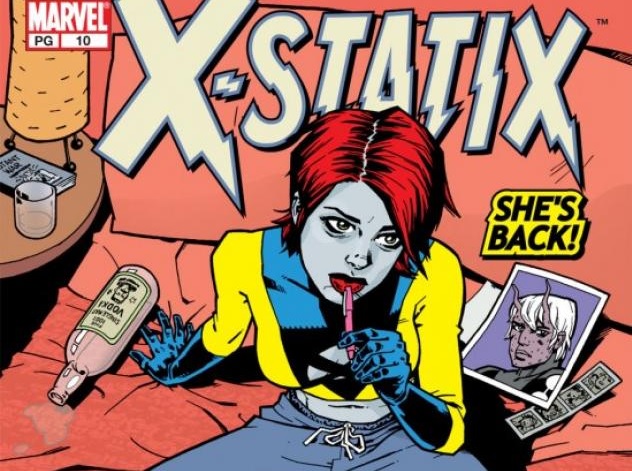
Most superheroes rely on something innate within themselves for their powers. Whether it’s their alien blood or their genetic mutations, it’s very much a part of them. Gin Genie’s no different, except what’s inside herself was put there by, well, herself—her superpowers rely on getting completely drunk.
Genie can generate seismic waves but is only capable of doing so if her blood-alcohol level is high enough. She’s literally only as powerful as she is drunk—and she’s a mean drunk. While she’s hammered, she’s not too picky about where she aims her blasts and has been known to take out her X-Statix teammates with them. But really, what else do you expect from a superhero who decides to cash in on her powers not by saving the world, but by appearing on a reality television show?
In all fairness to Genie, however, many of her teammates are pretty sad as well. Orphan, who has super senses and was temporarily given the name Mister Sensitive, has a back story of oily skin and insecurities . . . which he dealt with by attempting suicide.
9Shamrock
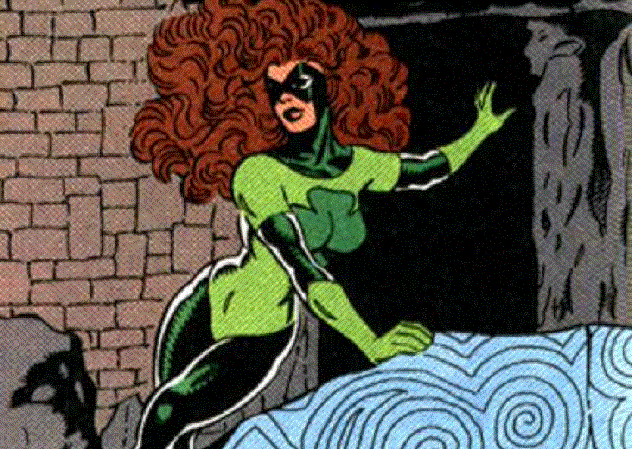
Molly Fitzgerald—otherwise known as Shamrock—was Marvel’s attempt at an Irish superhero. If there were any doubts about her ethnicity, they were immediately chased away by her shamrock-print costume, long curly red hair, and her superpower itself—she’s really, really lucky.
Her powers were given to her when her father prayed for superpowers for her brother (who was, of course, named Paddy). Lucky sprites possessed her instead, giving her the ability to use their good luck powers. Her brother was killed in a bombing by IRA terrorists and, when Molly returned home to her father, he immediately tried to turn her from good to bad. When that didn’t work, he tried to steal her powers. Fortunately for her, her luck won out—the gun her father was threatening her with exploded in his hand when he tried to fire it.
Molly’s career ended anticlimactically, when she slipped in a bathroom and broke her leg. Deciding that her luck was gone, she figured there as nothing more left for her and she’d better become a hairdresser . . . for the other superheroes.
8Big Bertha
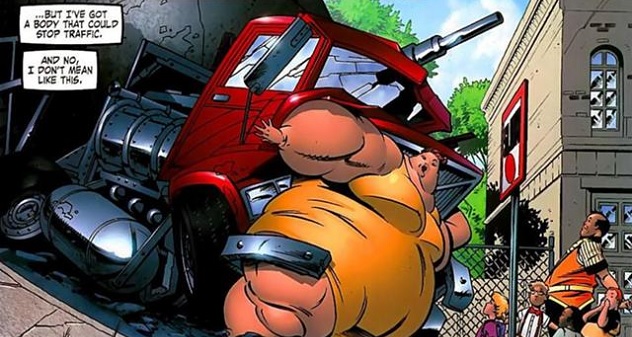
Big Bertha is a member of Marvel’s Great Lakes Avengers—a team of superheroes who have answered the call to protect America’s Midwest. She’s also the world’s only bulimic superhero.
By day, she’s Ashley Crawford—a stunningly beautiful, slender, rich supermodel. She’s passed up modeling opportunities around the world, wanting to stay in the Midwest and fund the entire team’s activities with her modeling money. Her mutant powers allow her to put on an extra 285 kilograms (630 lb) and turn into Big Bertha. In this form, she has super strength and the ability to withstand injury—even repelling bullets. While she keeps her honed athletic skills as Big Bertha, she does tend to tire out more quickly.
As if the depiction of the typical “thinner is better” (except for Deadpool, who only likes her when she’s fat) persona wasn’t bad enough, Big Bertha returns to her supermodel form by throwing up all her extra weight. As opposed to the usual depression that accompanies bulimia, she’s often shown strolling out of the bathroom after a purge, wiping her mouth and smiling.
7Ebony White
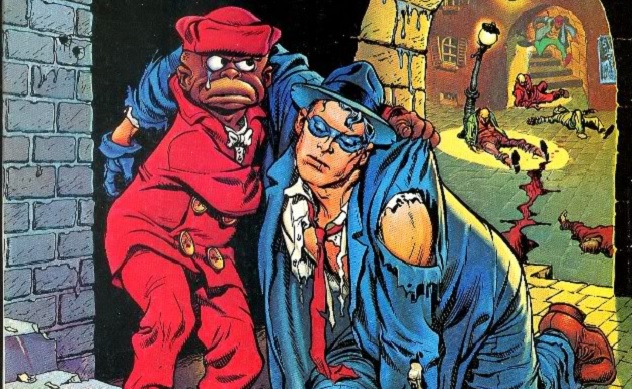
Ebony White was created in the 1940s—from his appearance to his speech and even his role, he neatly wrapped up just about every racial stereotype of that era that you can think of. White’s major role in The Spirit comic books was to be the less-than-intelligent sounding board for the real heroes to collaborate with. Oh—and also to chauffeur them around.
Bizarrely, the character became such a favorite of his creator, Will Eisner, that he soon received his own solo storylines. He became much more of a vehicle for comedy—complete with “funny ways” that, in retrospect, make him pretty painful to look at. This is in spite of Eisner’s insistence that he was only trying to create a good, moral character that readers could identify with. We’re pretty sure that idea just makes him even more of a racist creation.
There have been several different attempts at rebooting White, including turning him into a woman. Other reboots of The Spirit just leave him out entirely, and that might end up being the best way to go.
6Pieface
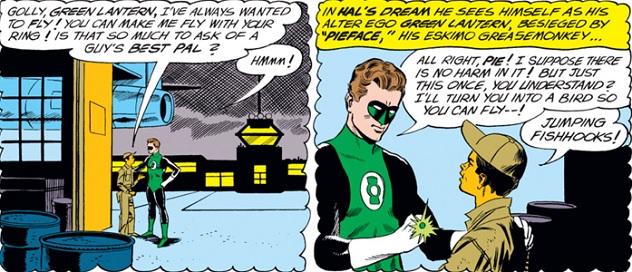
There’s nothing inherently wrong with Thomas Kalmaku. He’s the friend and confidant of the Green Lantern—he knows Lantern’s secret identity, and keeps a journal detailing all his heroic deeds. When he is finally awarded superpowers, he brings out the best qualities in others. He’s also incredibly intelligent, working as an aircraft engineer.
All in all, he absolutely didn’t deserve the nickname Pieface. When Hal Jordan famously dubs him that, some attempted to explain that it referred to Eskimo pies (because he’s Inuit, which is supposed to be the joke). Offensive as that theory is, the truth behind the name is actually even more offensive. “Pieface” is a racial slur leveled at anyone with a round, flat face—while it’s specifically been used toward anyone of Asian descent, racism isn’t picky and it’s been used for Inuit people as well.
Even though the character is portrayed as a loyal, intelligent friend who gives up the chance to become a full-time superhero because it would mean abandoning his family, he’s still judged and labeled by his nickname. Later incarnations of the character have him reacting to it in a much more appropriate fashion.
5Extrano
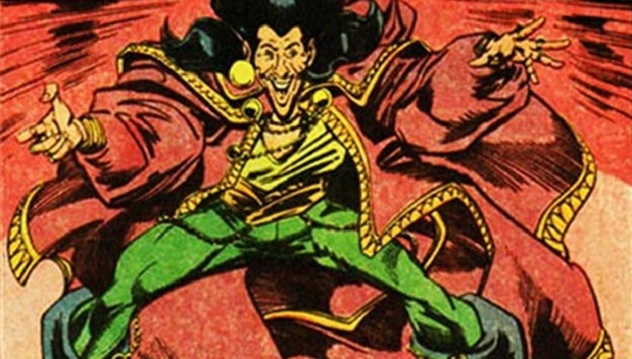
At first glance, Extrano (real name: Gregorio de la Vega) doesn’t seem that bad. In fact, he’s a trailblazer, credited as one of the first gay characters in comic book history.
Sadly, the good quickly turns sour—Extrano was obviously written and drawn by someone who had never met a gay man who wasn’t stereotypical and over-the-top feminine. Extrano is perpetually outgoing and friendly, and he refers to himself in the third person. Unfortunately, his name for himself is “Auntie.” He has a colorful wardrobe that’s heavy on the robes and garish jewelry, and he’s often the one that no one takes very seriously.
As if that wasn’t bad enough, his archrival is Hemo-Goblin the AIDS vampire. This makes sense in an offensive sort of way, as Extrano has already been clearly identified as HIV-positive. It’s never made clear, however, whether that’s a result of tangling with Hemo-Goblin or his extracurricular activities beforehand.
4Codpiece
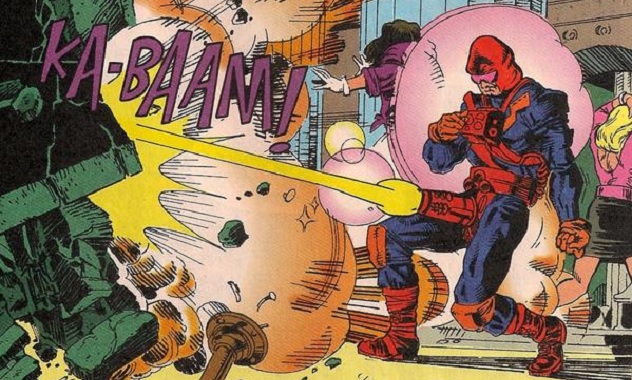
Thankfully, Codpiece only made one appearance in his short-lived career as a superhero. When he showed up in Doom Patrol #70, he was lamenting the size of his manhood. Clearly believing that bigger is better, he attempts to woo woman after woman and is met with the same sort of rejection over and over—he’s too small, he’s not big enough, and so on.
They’re actually talking about his height, but he’s convinced that all these women somehow know that he’s tiny in other ways, even though they hadn’t gotten a firsthand look. Even hooking up with a prostitute doesn’t make him feel any better about himself, so he goes overboard while compensating for his insecurities. He creates a codpiece with a rocket cannon (insert your own joke here), a drill, scissors, and even a spring-loaded boxing glove.
His codpiece doesn’t last long (again, insert your own joke here), and it’s ultimately dissolved by the super dissolving powers of the transsexual Coagula. We suspect there’s a lot more going on here than just a comic book character who was drawn while his creators were drunk.
3Enchantress
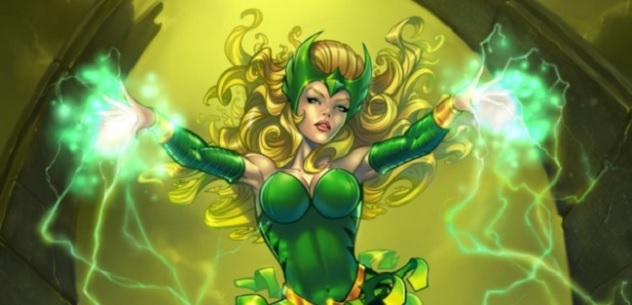
You don’t have to be a feminist to find Enchantress exasperating. Sure she’s a sorceress and all, and she’s got the body of a goddess, but it’s not like she’s using it to wield powerful, magical weapons and fight evil.
Unless, of course, you consider sex a powerful, magical weapon. Which Enchantress does. Blonde and beautiful, Enchantress’s first attempt at a career—sorcery—ended when she was expelled from school for causing too much boy trouble. Her storylines include trying (and failing) to seduce Thor, as well as trying (and succeeding) to seduce Thor later on. She’s capable of turning any man into her slave with a single kiss, and she’s not afraid of exploiting that.
Her right-hand man, Skurge the Executioner, was naturally obsessed with her. He stayed with her as she gave him just enough attention to ensure that she could keep stringing him along. She has a number of male followers that she treats in the same way, but keeps returning to Thor—especially when he assumes the throne of Asgard.
She does have other powers, such as transmutation, illusions, and mind control. However, those powers are most often used to enhance her physical appearance and the effect she has on the men around her. After all, what else could you possibly do with them?
2Anarchist, AKA Captain Coconut
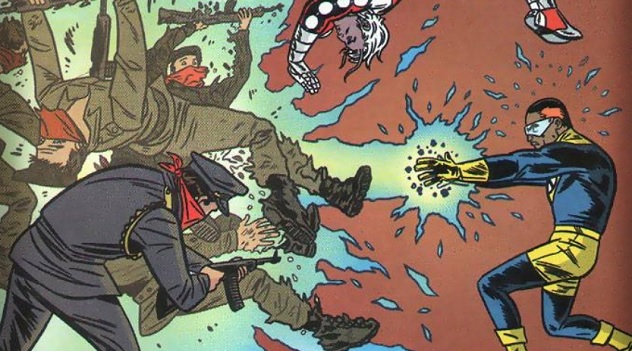
Anarchist is another member of X-Statix and a colleague of Gin Genie. According to his backstory, he grew up in a Caucasian family in a very Caucasian town, and never knew why his skin was so much darker than everyone else’s—he thought he was just really, really dirty. His attempts to scrub himself clean not only led to the development of an obsessive-compulsive disorder, but it also triggered a super ability to secrete acid from his skin and generate some sort of unspecified energy.
After his attempts to whiten his skin failed, he decided to put his powers to good use and apply for a position with the X-Statix. Once accepted, he adopts a belligerent and militant attitude that he thinks is more appropriate for his race. On X-Statix’s reality show, he’s known for exploiting his bad attitude and acting as over-the-top as possible in order to increase ratings.
Perhaps most cringeworthy is his nickname: Captain Coconut. Given to him by team member Spike—a fellow African-American and member of the National Association for Keeping it Real—he was dubbed Captain Coconut because he was “black on the outside and white on the inside.”
1Superman and Captain America
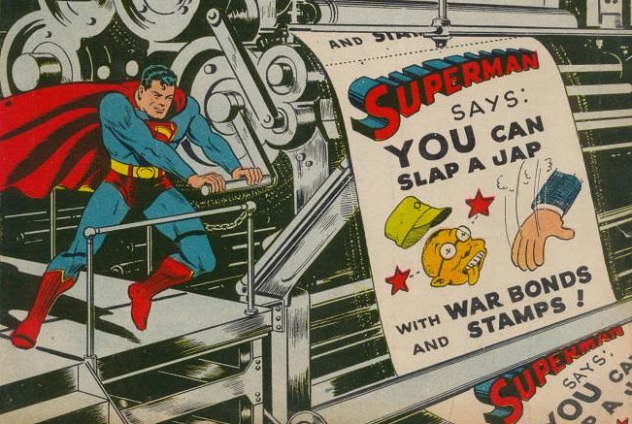
Don’t worry—we’re not talking about the modern incarnations of these tried and true favorites, but rather the decades-old versions of them. Throughout comic book history—as far back as 1937’s Detective Comics #1, there’s the overarching theme that suggests all that’s heroic about America is young, white, and male. Superman and Captain America are two of the biggest offenders when it comes to the portrayal of race in comics. For example, Whitewash Jones—one of the Captain’s many sidekicks—is drawn with every single negative racial stereotype that you can possibly think of.
Once World War II rolled around, Superman and Captain America were both recruited into the country’s propaganda machine. One of the most timeless images of this era shows Superman working at a printing press that’s spitting out a single broadsheet. On that sheet is an advertisement for war bonds and a suggestion that every time you buy one, “you can slap a Jap.” In a time when America’s own citizens were being rounded up and imprisoned in internment camps simply because they were of Japanese descent, that’s a pretty horrific image to slap on the front page of many people’s favorite comic.
Superman’s issues with racism continued well after World War II. Have you ever wondered why there was no racial diversity on Krypton? The official canon answer is that any non-white Kryptonians are segregated onto their own island, called Vathlo Island. Superman #239—which includes a map of Vathlo—describes the island as the “Home of a Highly Advanced Black Race.” DC Comics writer and editor Mark Waid has called the issue—and the island—something of an embarrassment, but he’s also quick to point out that it was a product of the time.

